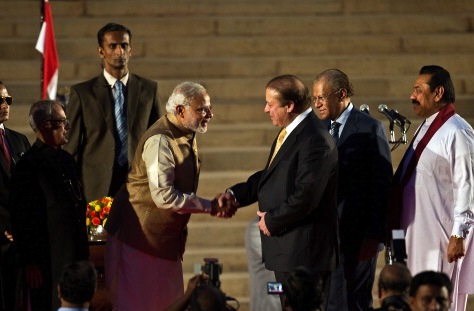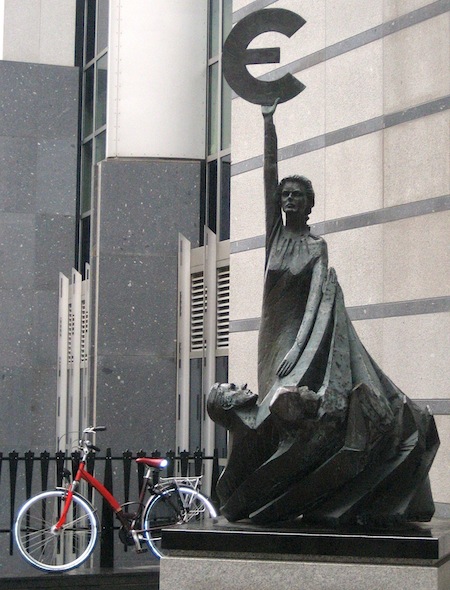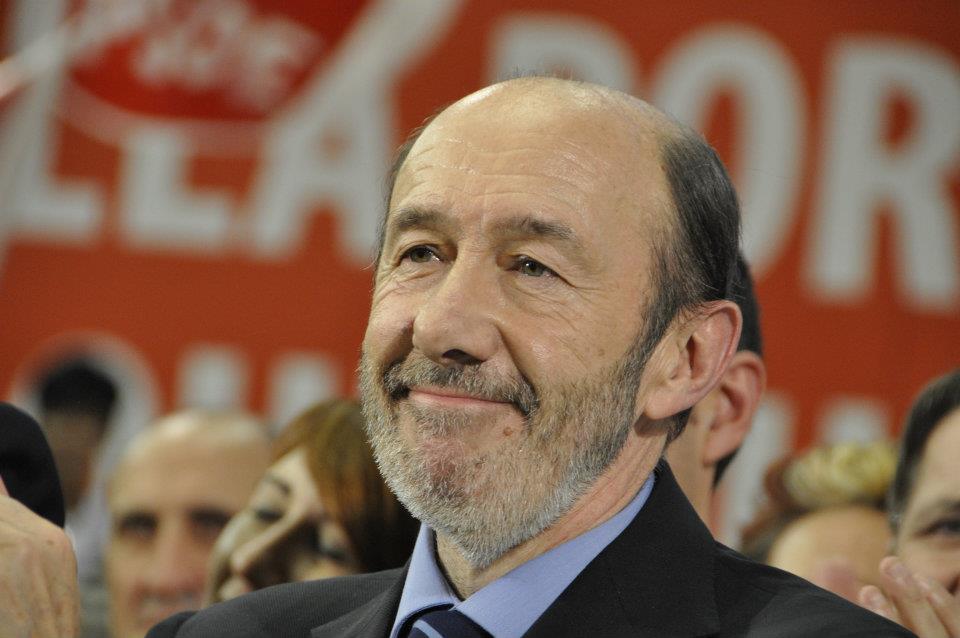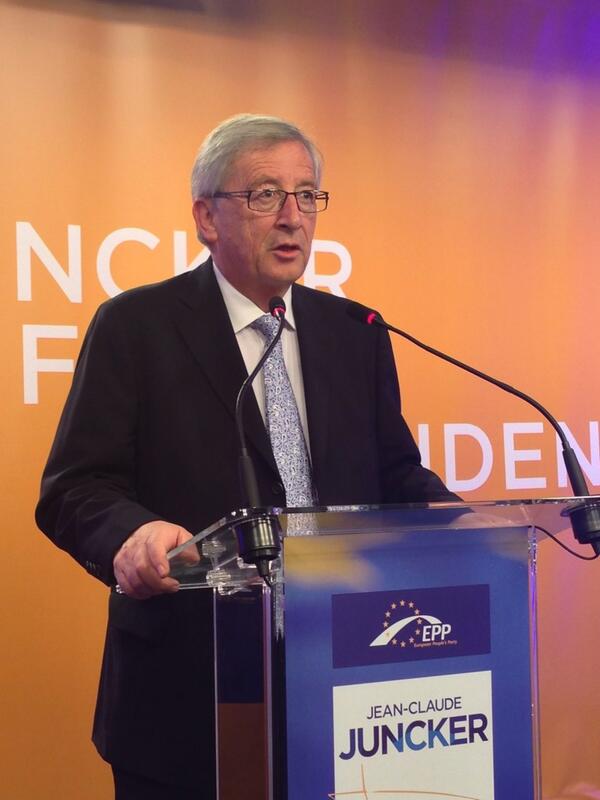Former Gujarat chief minister Narendra Modi was sworn in today as India’s 14th prime minister in New Delhi today.![]()
![]()
But as historic as his inauguration is, which brings to power Modi’s conservative, Hindu nationalist Bharatiya Janata Party (the BJP, भारतीय जनता पार्टी) after a landslide victory in India’s April/May national elections with the largest mandate of any Indian political party since 1984, it’s been eclipsed by the presence of Pakistan prime minister Nawaz Sharif.
It was the first time that a Pakistani leader has ever attended an Indian inauguration, and the handshake between Modi and Sharif is an audacious start for the Modi era. Modi, who has evinced a hawkish line on foreign policy, especially regarding India’s Muslim-majority neighbors, Pakistan and Bangladesh, made the surprising invitation to Sharif late last week. Sharif, much to the world’s surprise, and likely in opposition to hardliners in his own conservative party, the Pakistan Muslim League (N) (PML-N, اکستان مسلم لیگ ن) and within Pakistan’s military and intelligence communities, accepted invitation over the weekend.
Sharif joins a handful of regional leaders from within the South Asian Association for Regional Cooperation (SAARC) to attend Modi’s swearing-in ceremony, including Sri Lanka president Mahinda Rajapaksa and Afghanistan’s president Hamid Karzai.
Modi’s invitations weren’t without controversy at home — Modi’s hard-right, Hindu nationalist allies in Shiv Sena (SS, शिवसेना) opposed the outreach to Sharif, and Tamil Nadu leaders in both Modi’s National Democratic Alliance (NDA) and Tamil Nadu chief minister Jayalalithaa decried the invitation to Rajapaksa.
But Modi’s mandate is so sweeping that he has enough political capital to do just about whatever he wants, no matter what his allies think. Modi’s hawkish reputation, in combination with his parliamentary majority, could give him the space to pursue the kind of closer economic ties that have eluded prior Indian governments. Continue reading Photo of the day: Modi, Sharif meet at India’s inauguration





